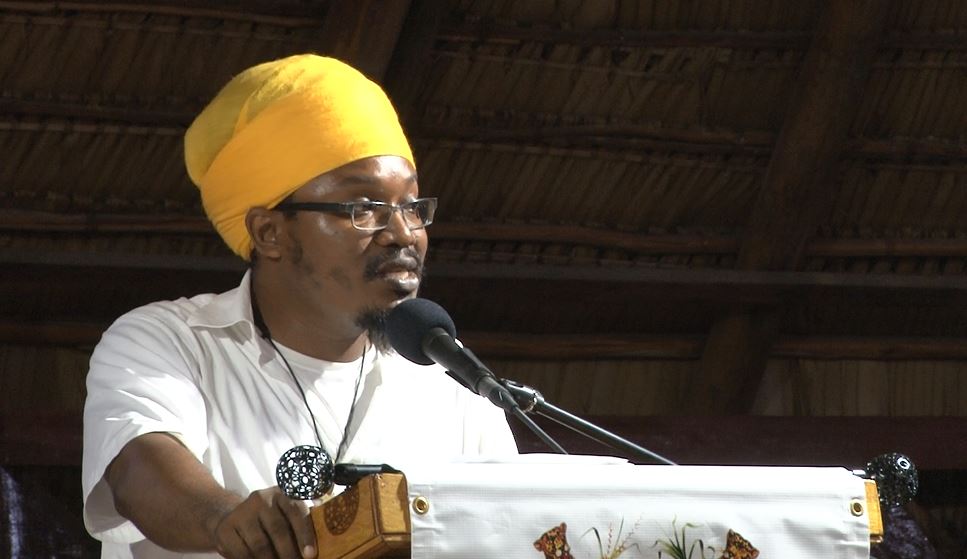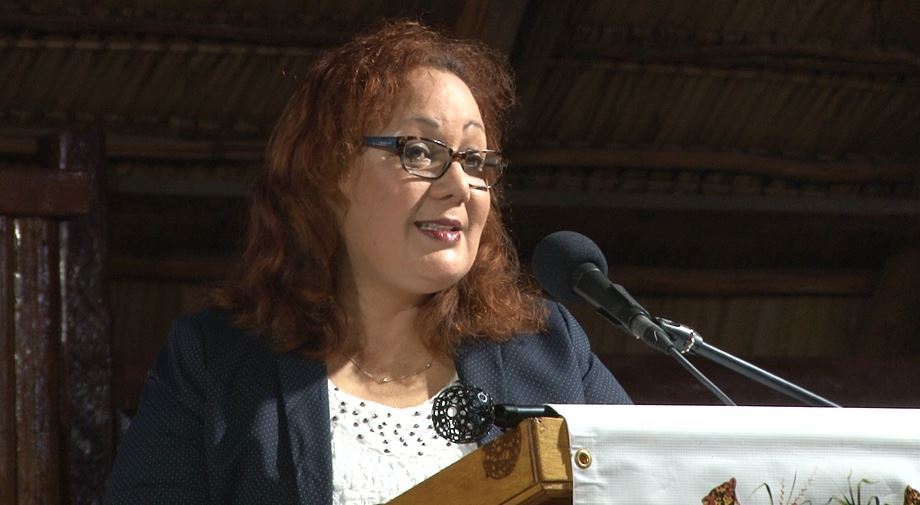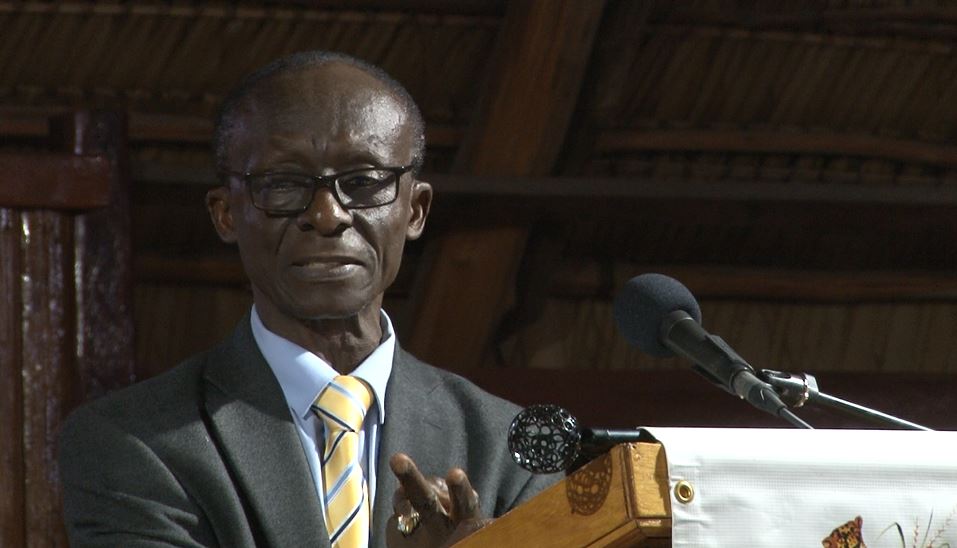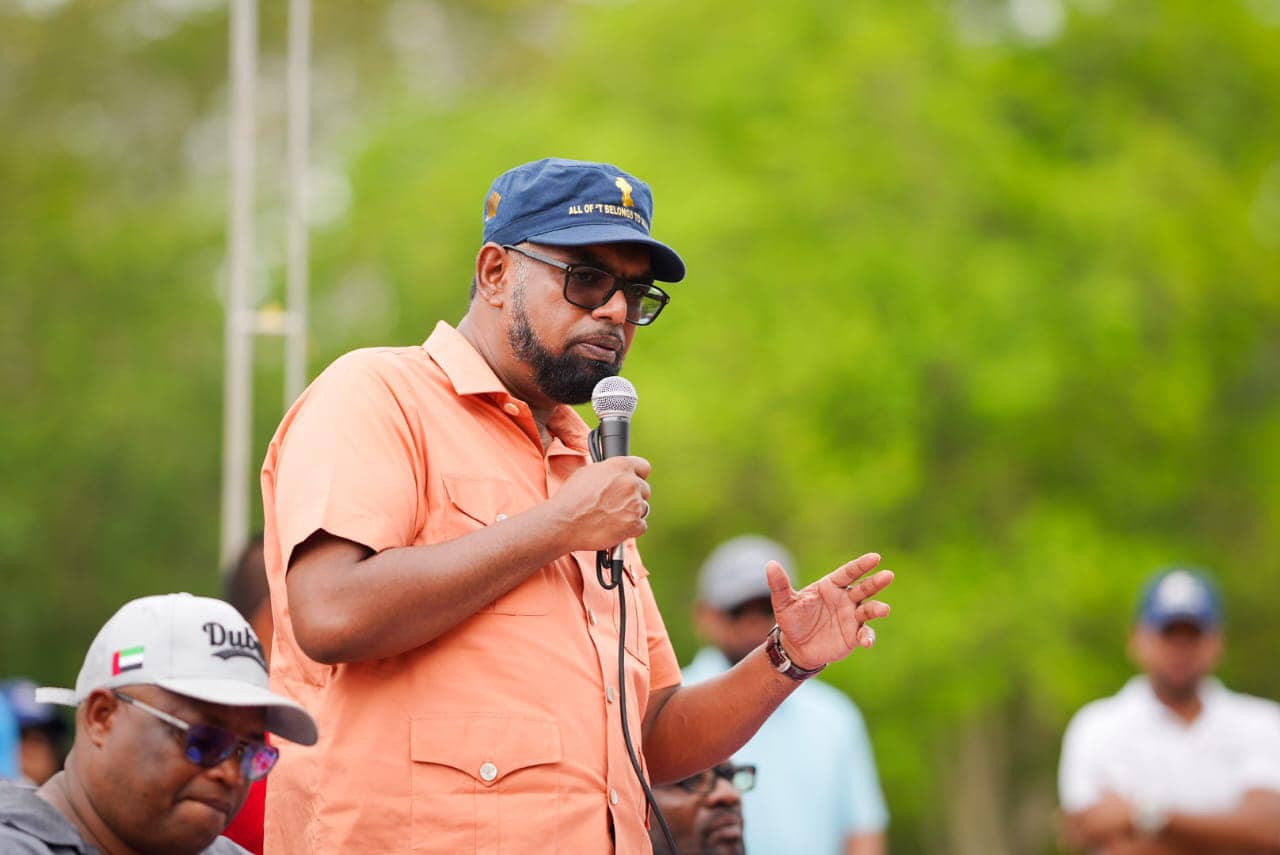By Bibi Khatoon
The local Rastafarian community is calling for compensation for the years they have suffered because of the “draconian laws against the possession and use of marijuana.”
“We feel that some form of reparation is in order…for the social, psychological and economic devastation,” the Rastafarian community suffered, said Ras Khafra Mesesdjehuti at a public forum organized by the University of Guyana at the Umana Yana Wednesday evening.

President David Granger has promised that during the next Parliamentary session, which begins today, existing legislation will be amended to remove the custodial sentences for possession of small amounts of marijuana; but Mesesdjehuti maintained that more needs to be done.
“Our rights need to be recognized,” he said.
“We will be out there [in front of the Parliament building] rallying so that the Parliamentarians get the message that we will not be quiet on this issue,” he told those at the Seventh Conversation on Law and Society, organized by the University of Guyana.
The presenters all supported the decriminalization or legalization of Marijuana on the basis of its health, economic or social benefits.
Professor Rose-Marie Belle Antoine, who is the Dean of the University of the West Indies’ (UWI) Faculty of Law and also former Chair of the CARICOM Marijuana Commission, described Guyana’s law, which includes a mandatory sentence of three years for possession of the substance as “the most draconian in the Region.”

She argued that there is much more to be gained from legalizing the substance than there is to be gained from criminalizing it.
While the economic and health benefits of cannabis have been widely debated, the Professor noted that the substance should be considered in the light of human rights, arguing that the laws are discriminatory.
“We know already who gets arrested for marijuana…it is the poor and the marginalized and the Rastafarians…not the middle class, the elite who are also using it.”
She added that the existing regime induces more harm than any consequences of the drug while the laws do not help to decrease the use of the substance.
“One fella said they (police) arrested him for Marijuana possession and put him in prison and he got more access,” she recalled.
Every prison raid in Guyana has resulted in the discovery of marijuana over the years. Police officers have also been arrested and jailed for transporting the substance.
Addressing the common belief by some that persons who use marijuana eventually “runs mad,” Prof. Antoine explained that scientific evidence shows that “there is a very tiny risk,” as this only applies to young persons.
As such, she said the CARICOM Marijuana Commission recommended that the drug be treated as alcohol where persons need to be of a certain age to access it.
One woman, Evadnay Innis, who hails from the town of Linden, shared her experience and noted that a friend of hers “degenerated” after constantly using marijuana.
She said the friend became an addict and started to steal money to buy the drug.
“Powerful evidence is what you have seen,” the woman said, as she urged authorities to put in place a contingency plan to deal with the effects of decriminalizing the substance.
In response, Country Representative of the Pan American Health Organisation/ World Health Organisation (PAHO/WHO), Dr. William AduKrow noted that one out of every ten persons develops a dependence on the substance.

However, he alluded to the practice of mixing cannabis with other drugs.
“We will never know the combination of drugs that person may be using; we will never know what happened before you got to know that person uses that particular drug so we have to be very careful when coming up with a scenario like that,” Dr. AduKrow said.
In 2017, he said of persons who sought treatment for drug use, cocaine topped the list at 39%.
According to Vice Chancellor of the University of Guyana, Professor Ivelaw Griffith, 339 persons of which 111 are on remand, are in the Guyana prisons for ganja possession.

He noted that based on the statistics presented by Prison Director, Gladwin Samuels, 95% of the convicted persons are there for more than 30 months.
The age group he said is mostly 18-50 years.
“In the context of the prison population and the prison profile where there is no meaningful educational programmes, where there is no meaningful rehabilitation…when you come out, all you can do is the things that will put you back in there,” Prof. Griffith said.








